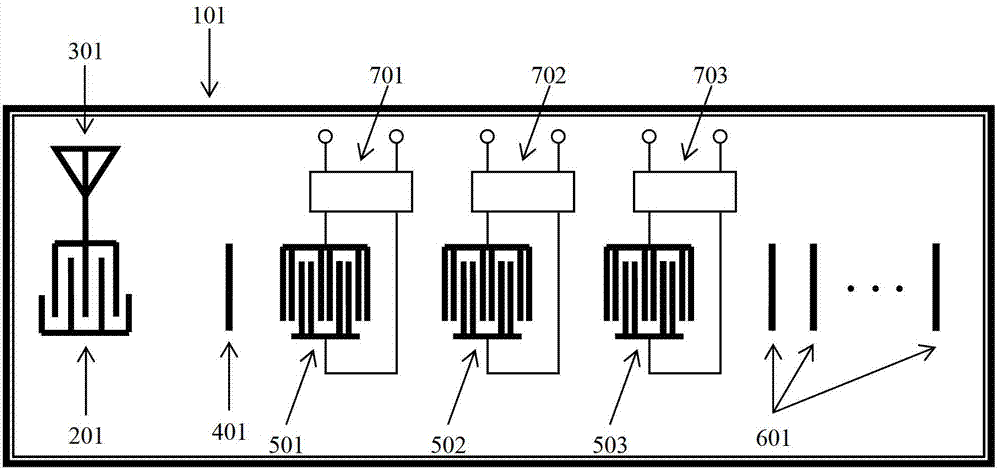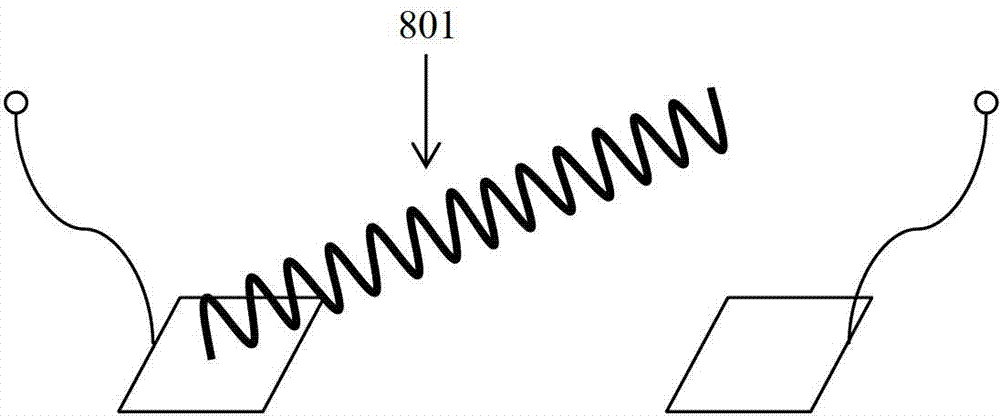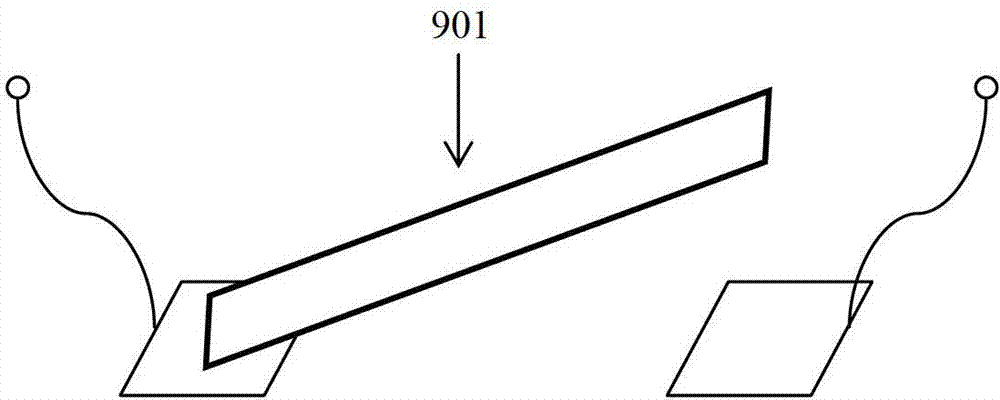Vibration sensor based on surface acoustic wave radio frequency identification technology and application for vibration sensor
A radio frequency identification technology, vibration sensor technology, applied to vibration measurement in solids, measurement of vibration, measurement of ultrasonic/sonic/infrasonic waves, etc., can solve problems such as increasing the cost of labels, achieve flexible variability, simple detection principle, sensor structure uncomplicated effects
- Summary
- Abstract
- Description
- Claims
- Application Information
AI Technical Summary
Problems solved by technology
Method used
Image
Examples
Embodiment 1
[0041] Such as figure 1 As shown, a vibration sensor based on surface acoustic wave radio frequency identification technology is used for radio frequency identification of the identity of the measured object, and is also used to monitor and record whether the vibration acceleration of the measured object exceeds the set threshold. The vibration sensor includes a surface acoustic wave device and a reader, the surface acoustic wave device includes a dipole 301, a piezoelectric substrate 101, an interdigital transducer 201, a reflection grid and an elastic element, and the antenna 301 , the interdigital transducer 201 and the reflective grid are all disposed on the piezoelectric substrate 101 , and the antenna 301 is connected to the interdigital transducer 201 . The coded reflective grid 601 is composed of 8 open-circuit electrodes in total, and adopts an on-off keying coding method, so it can distinguish 2 electrodes in total. 8 a measured object. The piezoelectric substrate ...
Embodiment 2
[0055] Such as figure 1 and image 3 As shown, the elastic element of this embodiment is selected as a micro-reed 901, and the specific implementation process is the same as that of Embodiment 1. In this embodiment, there are 7 coded reflective grids 601 in total. According to the pulse phase code and pulse position and phase combination modulation code, a total of 108 kinds of measured objects can be distinguished.
Embodiment 3
[0057] refer to figure 1 As shown, the elastic element of this embodiment is selected as a capacitive acceleration sensor, and the specific implementation process is the same as that of Embodiment 1.
PUM
 Login to View More
Login to View More Abstract
Description
Claims
Application Information
 Login to View More
Login to View More - R&D
- Intellectual Property
- Life Sciences
- Materials
- Tech Scout
- Unparalleled Data Quality
- Higher Quality Content
- 60% Fewer Hallucinations
Browse by: Latest US Patents, China's latest patents, Technical Efficacy Thesaurus, Application Domain, Technology Topic, Popular Technical Reports.
© 2025 PatSnap. All rights reserved.Legal|Privacy policy|Modern Slavery Act Transparency Statement|Sitemap|About US| Contact US: help@patsnap.com



